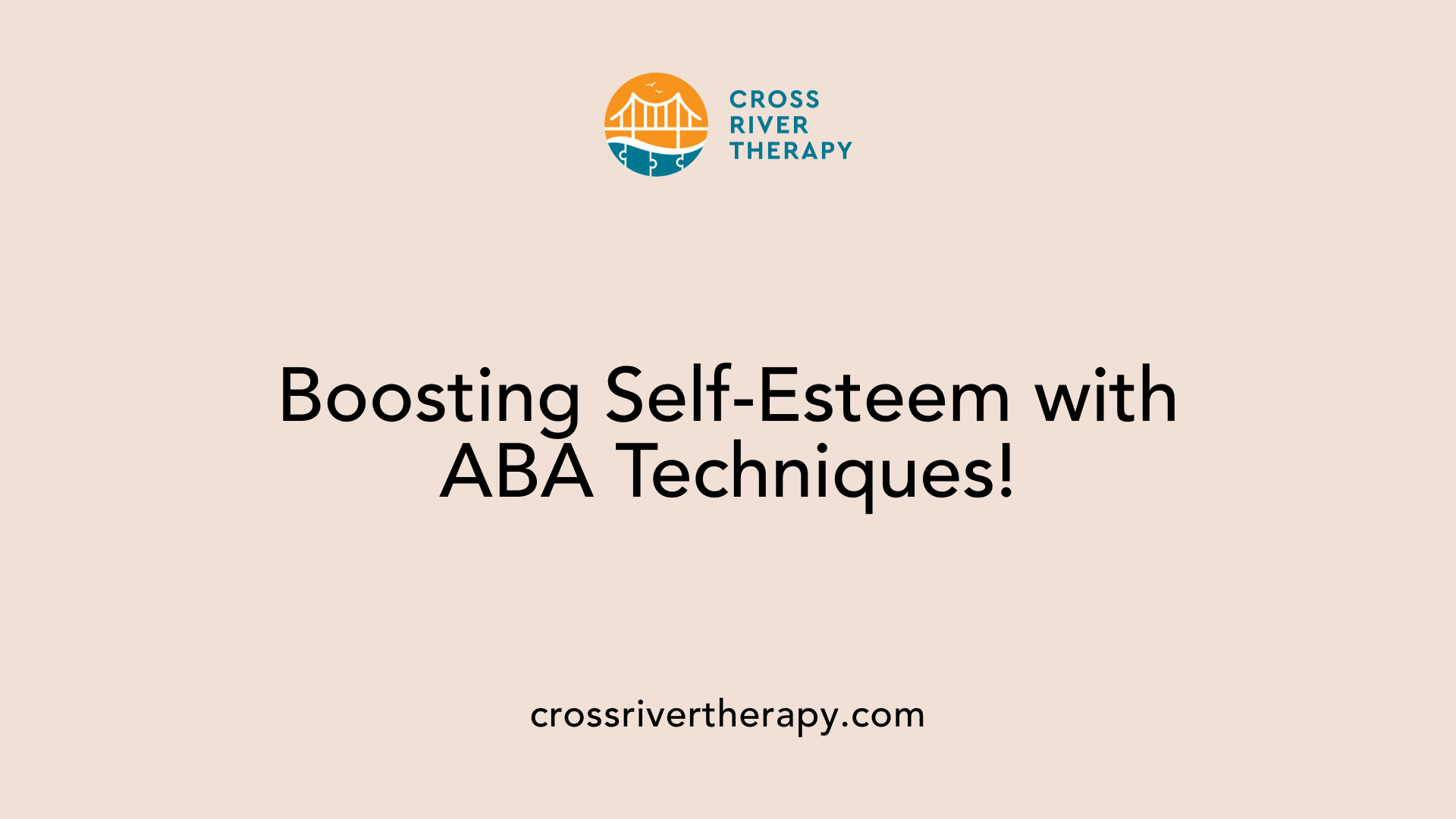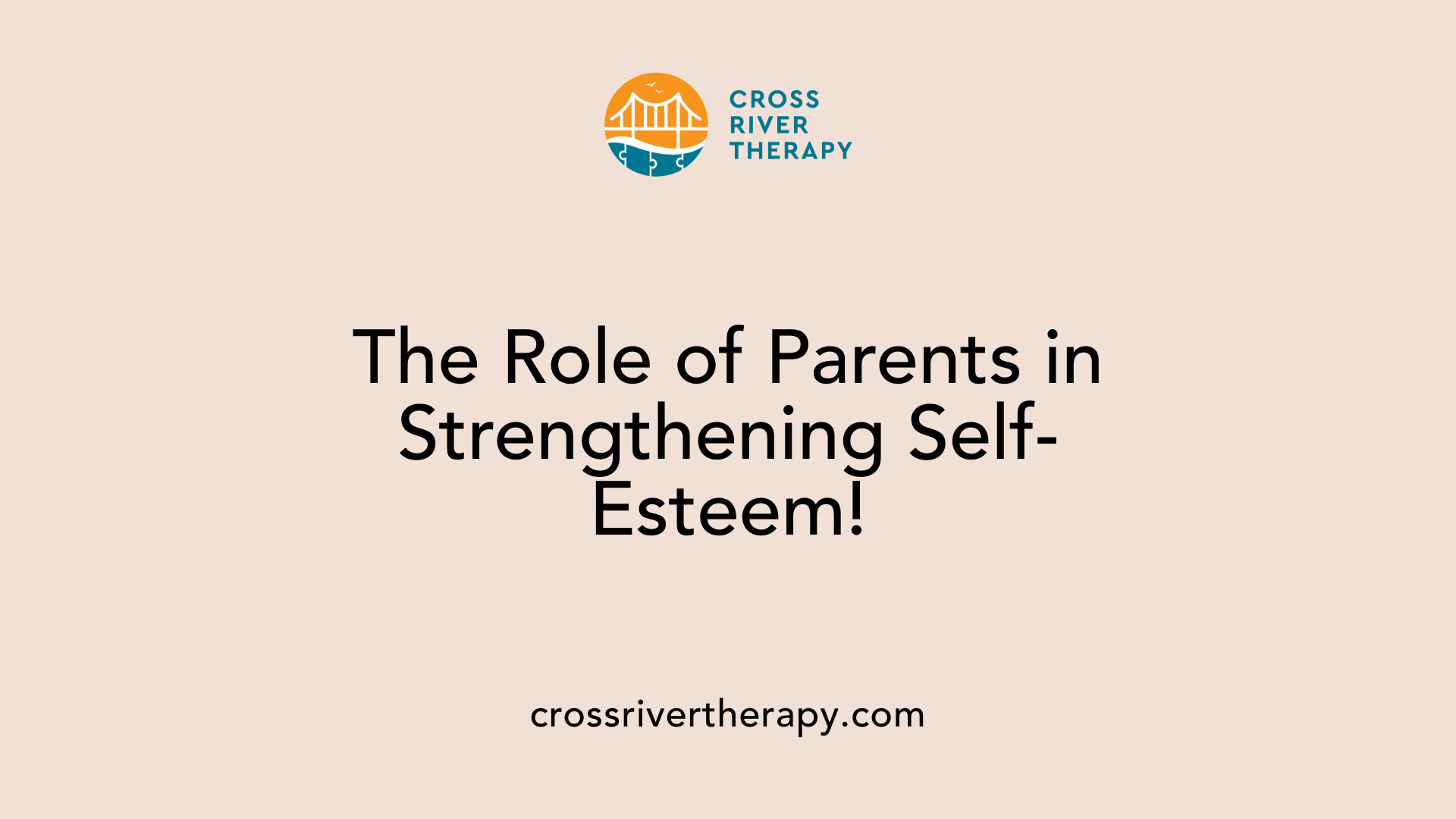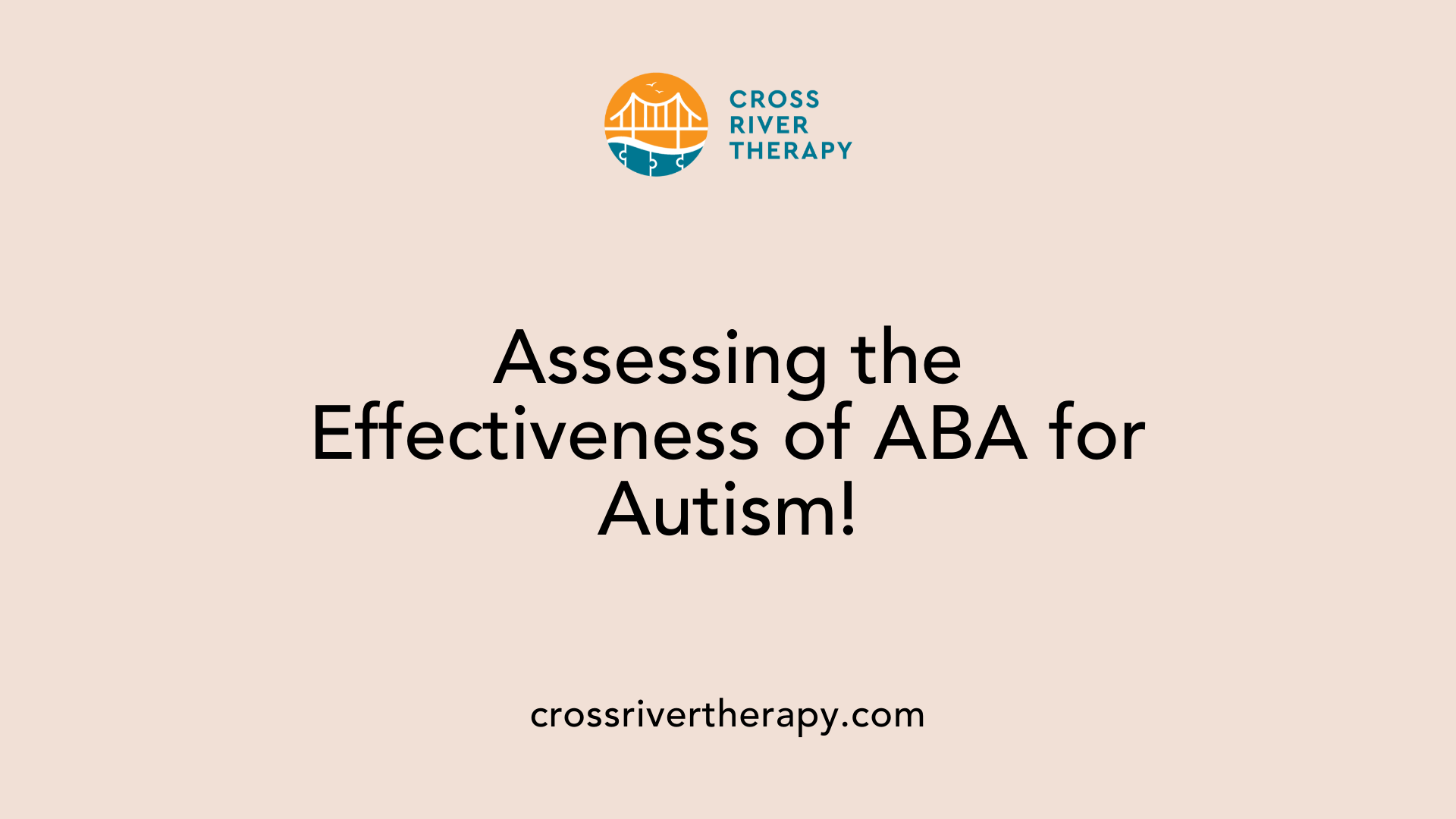How ABA Therapy Can Improve Self-Esteem in Children with Autism
Boosting Confidence and Self-Worth through ABA Therapy
Understanding ABA Therapy's Role in Building Self-Esteem
For children with autism, self-esteem can play a pivotal role in their overall development and quality of life. ABA therapy, or Applied Behavior Analysis, is a well-documented approach that not only addresses behavioral challenges but also empowers children by instilling a sense of confidence and worth. By leveraging positive reinforcement and tailored strategies, ABA therapy helps children navigate their environments successfully, ultimately enhancing their self-esteem. In this article, we explore how ABA therapy can serve as a cornerstone for self-esteem development in children with autism.
The Core Principles of ABA Therapy

Fundamentals of ABA Therapy
ABA (Applied Behavior Analysis) therapy is a scientifically supported method that focuses on understanding and modifying behavior through environmental interactions. It employs principles of behavior analysis to create individualized plans tailored to each child’s unique strengths and challenges, particularly benefiting children with autism.
How does ABA therapy help children with autism?
ABA therapy helps children with autism by applying behavior analysis principles to foster positive behaviors while diminishing harmful ones. The individualized approach means that techniques such as positive reinforcement and functional behavior assessments are used to craft targeted interventions that enhance communication, social skills, daily living capacities, and academic performance.
Application of behavior analysis
ABA therapy utilizes systematic methods to teach children vital skills. For instance, skills can range from basic communication to advanced problem-solving, fostering a sense of achievement. These systematic interventions motivate children to repeat desired behaviors in exchange for rewards, reinforcing a positive self-image.
Structured interventions for skill improvement
Through structured activities and guided practice, children are trained in social interactions, such as greetings and turn-taking. By mastering these skills, they gain increased social confidence and a sense of independence. The consistent learning environment that ABA therapy provides significantly decreases anxiety, paving the way for open engagement in learning.
Role of certified professionals
Certified professionals supervise ABA therapy programs, ensuring children receive close monitoring and individualized support throughout their sessions. By adjusting strategies based on ongoing data collection, these experts help maximize the child’s successes, ultimately leading to improvements in self-esteem and overall quality of life.
| Principle of ABA Therapy | Explanation | Impact |
|---|---|---|
| Tailored interventions | Customized plans addressing individual needs | Encourages targeted skill development |
| Positive reinforcement | Rewarding desired behaviors | Increases motivation and self-esteem |
| Structured learning environment | Consistent teaching settings | Reduces anxiety and builds confidence |
| Supervision by certified professionals | Expert-led therapy ensures effective progress | Maintains engagement and maximizes outcomes |
Bolstering Self-Esteem through ABA Techniques

What are the benefits of ABA therapy in enhancing self-esteem for children with autism?
ABA therapy plays a crucial role in enhancing self-esteem for children with autism through several strategies that emphasize positive reinforcement and skill-building.
Positive Reinforcement and Self-Worth
- This approach utilizes rewards such as praise or small incentives to encourage desired behaviors, fostering a sense of accomplishment.
- As children receive recognition for their efforts, they begin to view themselves positively, enhancing their self-worth and belief in their abilities.
Skill-Building and Achievement Fostering
- By focusing on building essential life skills, including communication and problem-solving, ABA therapy increases children’s independence.
- Achieving specific goals boosts their confidence and instills a sense of pride, directly impacting their self-esteem.
Creating Supportive Environments
- Structured therapy sessions reduce anxiety and provide a predictable environment where children feel safe to learn and grow.
- Supportive interactions in social settings help enhance their social skills and relationships, ultimately reinforcing a positive self-image.
Through these tailored techniques, ABA therapy not only aids children in developing necessary competencies but also nurtures their emotional well-being, promoting a healthier self-image as they progress.
| Technique | Description | Self-Esteem Impact |
|---|---|---|
| Positive Reinforcement | Rewards for desired behaviors | Enhances self-worth through recognition |
| Skill-Building | Teaching life and communication skills | Increases independence and sense of achievement |
| Supportive Environments | Structured, safe learning spaces | Reduces anxiety and fosters positive interactions |
Developing Essential Skills through ABA

How does ABA therapy contribute to the development of communication, independence, and social skills in children with autism?
ABA therapy plays a critical role in enhancing communication, independence, and social skills among children with autism through tailored, evidence-based strategies. This approach recognizes that each child is unique, allowing for personalized plans that focus on specific needs and strengths.
Communication Enhancement
ABA therapy systematically improves language and communication abilities. By breaking down complex tasks into achievable stages, children learn to express their needs effectively, reducing frustration and improving their interactions with peers and family. For instance, a child may begin by learning to request items verbally, practicing simple phrases before progressing to more complex sentences.
Independence and Self-Reliance
Developing skills that foster independence is a cornerstone of ABA therapy. Children are taught essential daily living skills, such as brushing their teeth and tying their shoes. These competencies not only increase self-sufficiency but also enhance their confidence and self-esteem. As they master these tasks, the sense of achievement reinforces their self-belief.
Improving Social Connections
Structured social skill training within ABA therapy encourages children to engage with others. Activities focused on turn-taking and greetings help build social confidence, allowing children to navigate interactions more comfortably. Positive reinforcement encourages them to practice these skills in real-world settings, strengthening their relationships with peers.
By fostering these essential life skills, ABA therapy not only improves communication and independence but also empowers children to thrive socially, enhancing their overall quality of life.
| Skill Area | ABA Therapy Focus | Impact on Child |
|---|---|---|
| Communication Skills | Step-by-step teaching | Better expression of needs, reduced frustration |
| Independence | Mastering daily living tasks | Increased self-confidence and self-reliance |
| Social Skills | Structured practice in social interactions | Improved confidence, stronger peer relationships |
Through these developments, children gain the tools they need for meaningful connections and a more fulfilling life, amplifying their self-esteem and capability in various settings.
Parental Involvement in Reinforcing Self-Esteem

What methods can parents use to support their child's self-esteem through ABA therapy?
Active parental involvement is crucial for enhancing a child's self-esteem through ABA therapy. Here are some methods parents can use:
Parent Training and Participation: Engaging in training sessions provided by ABA therapists equips parents with strategies to support positive behaviors. This active role helps them consistently reinforce skills learned in therapy at home.
Home-Based Positive Reinforcement: Parents can celebrate their child's achievements through various forms of positive reinforcement—like praise, rewards, or displaying accomplishments. This consistent acknowledgment fosters a sense of achievement and boosts the child's confidence.
Encouraging Individual Strengths: By focusing on the child’s unique talents and interests, parents can create opportunities for success. Activities that align with the child’s strengths can improve their self-worth and independence.
Structured Learning Environments: Establishing a secure, predictable atmosphere at home with visual schedules and reward systems reduces anxiety. This structure allows children to feel more confident in their abilities, enhancing their self-esteem over time.
Communication with Professionals: Regular discussions with therapists and educators ensure that strategies used at home align with those in therapy, promoting consistency and a unified approach to skill development.
| Method | Description | Benefit |
|---|---|---|
| Parent Training | Parents participate in workshops to learn effective reinforcement strategies. | Increases consistency at home |
| Positive Reinforcement | Celebrating achievements through praise and rewards. | Boosts child's self-esteem |
| Focus on Strengths | Encouraging child's special interests for skill-building. | Fosters independence |
| Structured Environments | Creating predictable routines with visual aids. | Reduces anxiety |
| Communication with Professionals | Keeping in touch with therapists for aligned strategies. | Ensures a cohesive support system |
Through these methods, parents can significantly influence the development of their child's self-esteem, contributing to their overall growth and success in ABA therapy.
Evaluating the Efficacy of ABA for Autism Treatment

Is ABA considered the most effective treatment for autism?
Applied Behavior Analysis (ABA) is widely recognized as the leading treatment for autism, rooted in strong research backing its success. Numerous studies affirm ABA's structured methodology in enhancing vital skills such as communication, social interaction, and daily living activities. This treatment approach aligns with the developmental needs of children diagnosed with autism spectrum disorder (ASD) and focuses on fostering independence through specialized learning.
One of the most compelling aspects of ABA is its early intervention approach. Research highlights that engaging children at pivotal stages can result in significant long-term benefits. For instance, findings suggest that about 50% of children undergoing ABA can make enough progress to integrate successfully into mainstream classroom settings.
Effectiveness of early intervention
Timely intervention is crucial. Early ABA engagement capitalizes on developmental windows, helping children acquire essential skills like self-regulation and communication at a formative age. The relevance of these early experiences cannot be overstated; they lay the groundwork for improved social interactions and daily functioning as the child grows.
Continuous assessment and adjustment
ABA thrives on individualized strategies tailored to each child's specific strengths and requirements. These custom plans are dynamic and subject to ongoing evaluation and modification. As children make progress—or face challenges—therapists adjust the treatment plans accordingly, ensuring the therapy remains relevant and impactful. This adaptability is vital for maintaining engagement and fostering positive outcomes.
The compelling evidence supporting ABA positions it as the gold standard in autism treatment, effectively enhancing children's self-esteem and equipping them with the skills necessary for thriving in their everyday environments.
| Aspect | Details | Impact on Self-Esteem |
|---|---|---|
| Evidence-Based Approach | Research-proven efficacy | Builds trust in therapy |
| Early Intervention | Critical target for foundational skills | Leads to significant progress |
| Individualized Plans | Tailored to specific needs | Encourages personal achievements |
Through this diligent framework, ABA not only addresses behavioral concerns but profoundly impacts overall self-confidence and life quality for children with autism.
Conclusion: ABA Therapy's Transformative Potential
ABA therapy offers a transformative approach to enhancing self-esteem in children with autism by empowering them with the skills and confidence they need to interact with the world more successfully. Through positive reinforcement, tailored interventions, and parental involvement, ABA therapy nurtures the child's growth and emotional well-being. As a scientifically validated method, it remains one of the most effective treatments available for autism, promising brighter futures for children by fostering independence, communication, and social skills.
References
- The Benefits of ABA Therapy - The Autism Therapy Group
- How ABA Therapy Builds Confidence in Children with Autism
- How To Increase Self-Confidence In Children With Autism
- Benefits of ABA Therapy for Children with Autism
- Applied Behavior Analysis (ABA) | Autism Speaks
- Applied Behavior Analysis (ABA) | Autism Speaks
- Harnessing ABA Therapy for Social Skills Development in Autism
- Benefits of ABA Therapy for Children with Autism
- 7 Ways Children with Autism Benefit from ABA Therapy | Blog - MySpot



